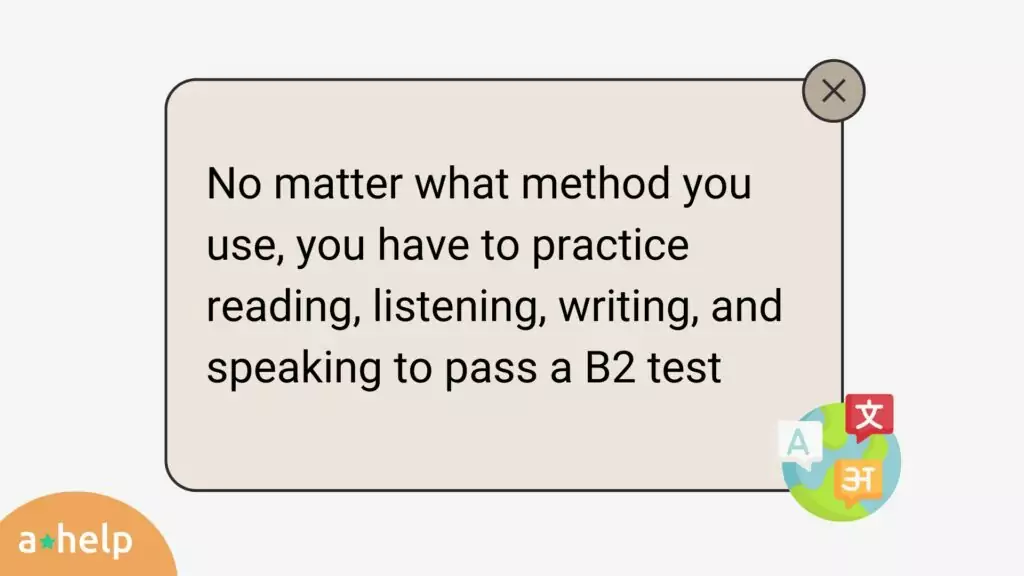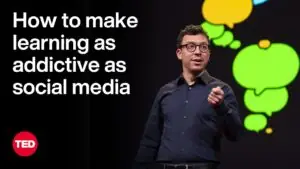The popular language-learning app Duolingo has recently claimed to now cover material up to the B2 level of the Common European Framework of Reference for Languages (CEFR), sparking heated debates among learners and educators alike.

✅ AI Essay Writer ✅ AI Detector ✅ Plagchecker ✅ Paraphraser
✅ Summarizer ✅ Citation Generator
Key Takeaways:
- While Duolingo covers B2-level material, it doesn’t necessarily guarantee learners will reach B2 proficiency without additional study and practice, especially in real-life contexts.
- There is a disconnect between scoring high in computerized language tests and actual speaking ability, highlighting the need for comprehensive assessment in language learning.
- Duolingo is a useful tool for beginner to intermediate language learning, but a balanced approach that includes various sources of learning is essential for higher-level proficiency.
George Lawson, an avid language learner who has used various language learning apps, believes that Duolingo has taken a positive step by incorporating B2-level materials, albeit with a caveat. “I believe they cover B2 material, not that you will be B2 once you’ve completed it,” Lawson noted. He compared it to how another app, Busuu, covers C1 material:
“You need to study specifically for the test if you want to pass it, regardless of the method you use.”
Samantha Wang, a seasoned language instructor, supported this view, emphasizing that learners must practice all language skills to succeed. “No matter what method you use, you have to practice reading, listening, writing, and speaking to pass a B2 test,” Wang stated. She indicated that she had seen students struggle because they did the bare minimum, implying that effort is more significant than the tools used.

Meanwhile, Elizabeth Thompson, who works a demanding 60-hour-a-week job, shared her personal experience. Having used Duolingo almost exclusively due to time constraints, she had completed the Spanish course and taken a placement test at B2. However, she humbly rated her proficiency at B1, demonstrating the potential gaps between app-guided learning and actual language proficiency. After all, the app can’t fully replace even an online language tutor.
The Issues with Duolingo Testing
On the other side of the debate, Tom Peterson, a linguistics analyst, argued that Duolingo has never explicitly claimed to get learners to B2. “They ‘cover’ the B2 level, i.e., they expose you to the vocabulary of B2, that’s it. Actual B2 entails reading longer texts, comprehending spoken word on Radio/TV and being able to have a conversation. Duo doesn’t offer that yet,” Peterson opined. He also speculated about the future of language-learning technology, predicting that real-time conversations might soon be possible thanks to advancements in narrow AI, like OpenAI’s ChatGPT4.
Adding another educator’s perspective, Caroline Lee, an English teacher with 8 years of experience, highlighted the discrepancy between computerized test scores and actual speaking ability. “Many students score B2 on the computerized test but when it comes to speaking they’re often no higher than A2. This is because they can’t speak fluently using correct grammatical structures and use B2 vocabulary on a wide variety of topics,” Lee commented.
A different viewpoint came from Rafael Santos, a language learning advocate, who criticized Duolingo for its focus on perfect grammar and spelling. He suggested a shift in approach: “Comprehensible input and concept checking should be their only concern.”
Finally, Aaron Mitchell, a regular contributor on language-learning forums, cautioned against being overly critical of Duolingo. He noted that, while a comprehensive approach to learning a language is the best, dismissing Duolingo outright is unproductive.
“There’s a clear negative bias for Duolingo here. It’s good for language learning at least at a beginner up to intermediate level. Those saying it’s all garbage and good for nothing are simply incorrect”
Aaron Mitchell
Focal Point
While opinions vary, the consensus appears to be that apps like Duolingo can aid language learning to some extent but are not a complete solution. For truly comprehensive learning, especially at higher levels like B2, it seems that a balanced approach incorporating reading, listening, writing, speaking, and real-life language exposure may be most effective.
Navigating the Language Learning App Landscape Beyond Duolingo
As we delve deeper into the world of language-learning apps, one question that often comes up is, “Which app is right for me?” While Duolingo is undeniably popular, other apps such as Babbel, Rosetta Stone, and Busuu also offer unique features that may better suit different learning styles. Choosing the right app could be the difference between hitting a language-learning plateau and achieving fluency.
Below is a simple comparison table of Duolingo and some of its major competitors:
| App | Price | Key Features | Ideal For |
| Duolingo | Free (with in-app purchases) | Gamified learning, wide range of languages, focuses on vocabulary and grammar | Beginners looking for a fun, engaging start |
| Babbel | Subscription-based ($6.95 – $12.95/month) | Comprehensive courses, focus on conversation, more in-depth grammar explanations | Intermediate learners aiming to improve conversation skills |
| Rosetta Stone | Subscription-based ($11.99 – $199) | Immersive method, speech recognition technology, no translation | Those looking for a full immersion experience |
| Busuu | Free basic plan, Premium plan ($9.99 – $69.99) | CEFR-aligned courses, practice with native speakers, grammar tips | Learners seeking structured lessons and native speaker interaction |
Choosing the right app depends on your learning goals, budget, and personal preferences. Remember, language learning is a journey, not a destination, so find the tool that makes the journey enjoyable for you.
Read also:
Tandem GPT: The AI Language Partner For Learning
The Science of Language Learning: Tips of the Month
Navigating the Language Learning Journey: Experiences and Strategies with Duolingo
Follow us on Reddit for more insights and updates.
Comments (1)
Welcome to A*Help comments!
We’re all about debate and discussion at A*Help.
We value the diverse opinions of users, so you may find points of view that you don’t agree with. And that’s cool. However, there are certain things we’re not OK with: attempts to manipulate our data in any way, for example, or the posting of discriminative, offensive, hateful, or disparaging material.






do you have a pre test to deterrmine where to start your language program?